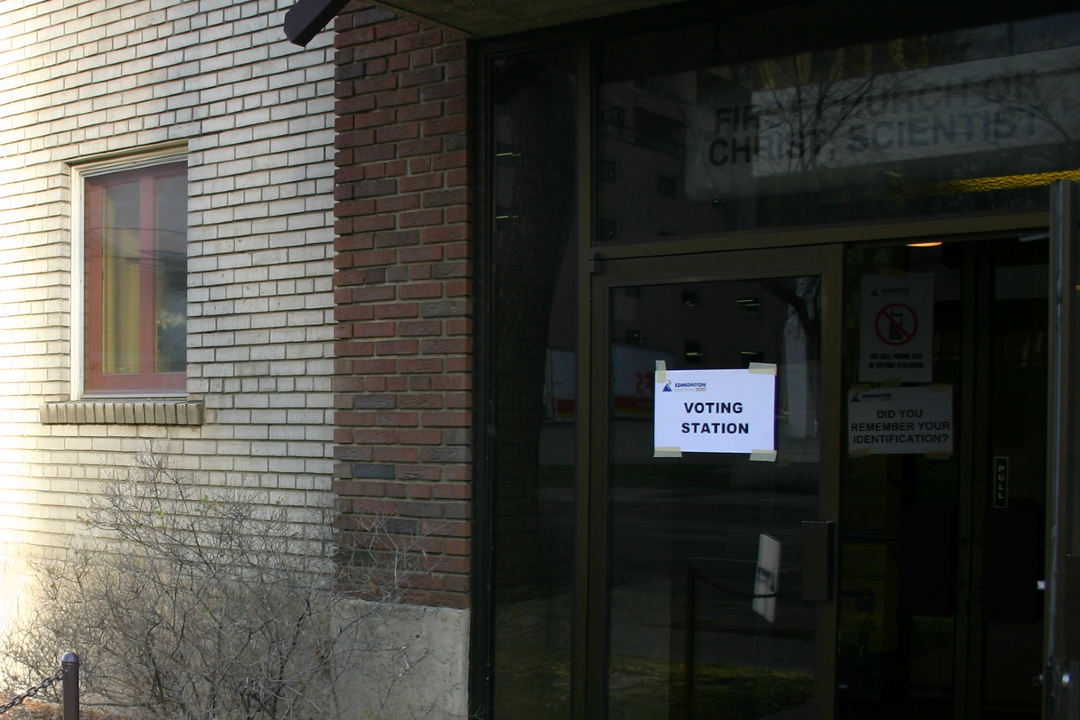On June 23, Alberta ditched electronic counting machines and conducted a manual vote count for three by-elections for the legislature, and did so in a standard amount of time. The next test of the step away from electronic tabulators and towards hand counts in Alberta will be on Oct. 20, when 14 municipalities in the Edmonton region will elect mayors and councils.
Last October, the United Conservative Party government passed Bill 20, which banned the use of automatic tabulation machines (in use in parts of the region since the 1960s). Municipalities and their representatives have said this change will lead to increased costs and longer waits for results to be finalized.
Edmonton Mayor Amarjeet Sohi told Postmedia that he thinks the new rules stem from "conspiracy theories and the wishes of a small minority," and that electronic tabulation are "safer, more secure, and more reliable." Over in St. Albert, Mayor Cathy Heron (who will not seek re-election this year) said the bill shows "a lack of respect for voters," and that a manual vote count will cause a tax increase. Alberta Municipalities, a non-profit that represents 264 municipalities in Alberta, shared myriad concerns about the many effects of Bill 20.
Taproot reached out to Beaumont, Devon, Fort Saskatchewan, Gibbons, Leduc, Leduc County, Morinville, Parkland Country, Spruce Grove, St. Albert, Strathcona County, Stony Plain, and Sturgeon County to determine what the change will mean compared to the last election in 2021. We asked: How much did your municipal elections cost in 2021 compared to your projections for 2025? And how long did the unofficial vote count take in 2021 compared to your estimates for 2025? (Taproot reported on Edmonton's answers to these questions in May.)
What will the changes to vote tabulation mean across the region? For two municipalities, it's business as usual. Others, however, expect multi-day delays in providing unofficial results and costs increasing by up to 300% compared to 2021. Mitigating factors outside Bill 20 to keep in mind are that the 2021 election included a vote for who Alberta wants selected for the Senate, two referenda, and COVID-19 safety measures. This year's elections have none of those complications. Regardless, Taproot found that most elections across the region will take longer and cost more in 2025.

An Edmonton polling station in 2010. This year's municipal elections around the region will, in one case, take four days longer and cost three times as much, while other municipalities will experience no changes. (Mack Male/Flickr)
The data
| Municipality | Time to unofficial result, 2021 | Time to unofficial result, 2025 | Cost, 2021 | Cost, 2025 |
|---|---|---|---|---|
| Sturgeon County | No answer | No answer | $44,815 | No answer |
| Stony Plain | Approx two hours | No answer | No answer | Budget expected to increase |
| Spruce Grove | No answer | No answer | No answer | No answer |
| Parkland County | Approx 1.5 hours | Approx 3.5 hours; unofficial results either same evening or by 9am next day | $174,463 | Approx $195,000 |
| Morinville | Just under an hour | Same day, between 11pm and midnight | No answer | $20,000 more |
| Fort Saskatchewan | Almost immediately | By midnight, ideally, but maybe next day | $85,000 (rough figure) | $170,000 is budgeted |
| Leduc County | Three to six hours, counted by hand | Same as 2021 | ||
| Strathcona County | By 9pm | By midnight | $705,871 | $985,573 |
| Leduc (City) | By 8:30pm | By between midnight and 2am | $117,500 | $207,000 budgeted |
| Beaumont | Within two hours | 5am | $62,000 | Similar costs. Beaumont is using city employees instead of hiring more people |
| St. Albert | Within two hours | Oct. 24 | $261,200 | $930,700 |
| Devon | Less than two hours | Six to seven hours | $20,000 | $40,000 |
| Gibbons | By 4am, counted by hand | Sooner than 2021 | Approx $7,000 | $10,000 is budgeted |
Regardless of how much vote counts cost and how long it takes to share unofficial results, the provincial government requires official counts by noon on Friday, Oct. 24. That is the same deadline as before Bill 20 was passed, meaning municipalities have the same amount of time but more work to do.
Also: What issues do you care about as you consider who to vote for in the 2025 municipal election, and why? The 2025 municipal elections are approaching. Let us know what matters, and read more about what we plan to do with what we gather.
